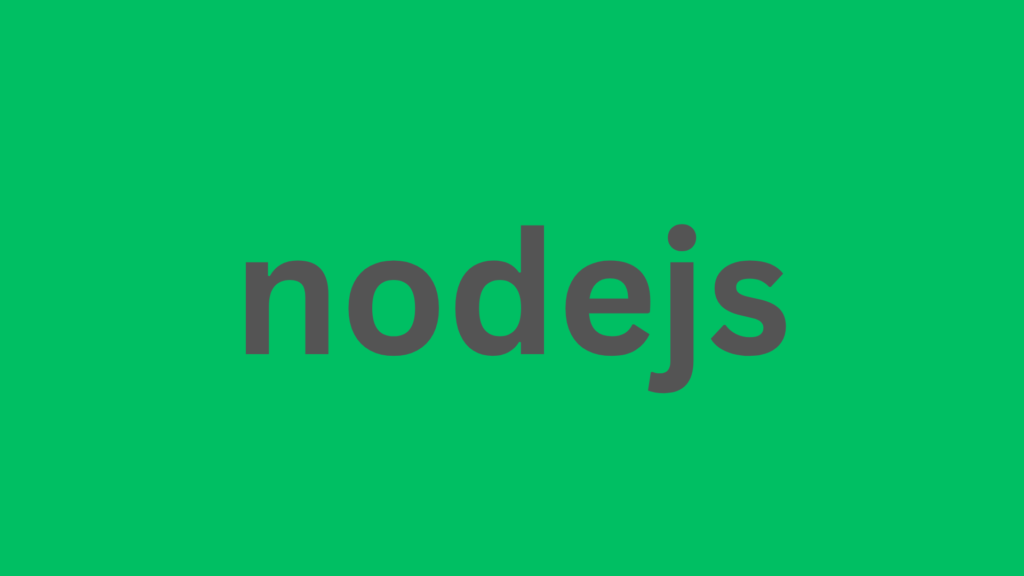
Node.js: Framework or Library? Let’s Clear the Confusion
When developers discuss Node.js, one of the common debates that arise is whether it’s a framework or a library. While both terms are often thrown around interchangeably, they actually have distinct meanings in the world of software development. Understanding the role Node.js plays in the development ecosystem requires us to dive into its architecture, capabilities, and how it compares to both frameworks and libraries.
Understanding the Basics: What’s a Framework?
A framework can be described as a skeleton or blueprint for building software applications. It typically provides developers with a structured way of organizing code and a set of guidelines or conventions to follow. Frameworks often have predefined behavior that developers can build upon, which helps streamline the development process.
The key characteristics of a framework include:
- Inversion of Control: The framework often calls your code instead of your code calling the framework.
- Opinionated Structure: Frameworks tend to dictate how the application should be structured, providing an organized way to code.
- Predefined Flow: A framework offers a template or flow for application development, reducing decision-making about the structure of the application.
Popular frameworks include Angular, Django, and Ruby on Rails.
What’s a Library?
A library, on the other hand, is a collection of pre-written code that developers can use to perform common tasks. Libraries offer more flexibility than frameworks, as developers can pick and choose which functionalities to implement, often using them on-demand.
Characteristics of a library include:
- Direct Calls: Unlike a framework, a library allows developers to call functions and use features directly in their code.
- Flexibility: Libraries do not impose strict guidelines or structures, giving developers the freedom to design their own architecture.
- Task-Oriented: A library usually focuses on solving specific problems or performing certain tasks, such as making HTTP requests or handling dates.
Examples of libraries include jQuery, Lodash, and Axios.
What Exactly Is Node.js?
Node.js is an open-source, cross-platform runtime environment built on Chrome’s V8 JavaScript engine. It enables JavaScript to be used for server-side scripting, allowing developers to build scalable and fast network applications. Unlike traditional server-side languages like PHP, which require a separate server process, Node.js executes code directly in a runtime environment.
Is Node.js a Framework or Library?
While many assume that Node.js is a framework due to its extensive capabilities, it’s actually neither a framework nor a library. Node.js is better classified as a runtime environment that allows JavaScript to be executed outside of a browser. Here’s why:
- It’s a Platform: Node.js provides an environment for running JavaScript on the server side. This makes it a platform rather than a framework or library, as it allows developers to run JavaScript code independently of a browser.
- Built-in Libraries: Node.js comes with a rich set of built-in libraries, like the “http” module for creating web servers or the “fs” module for working with file systems. However, these are tools within the runtime environment, not external libraries that need to be integrated.
- Extensible with Frameworks: Frameworks such as Express.js or Koa.js are built on top of Node.js to provide additional structure and functionality for building applications. This is why developers often confuse Node.js with a framework—it’s the environment upon which frameworks are built, not the framework itself.
- Control Flow: With Node.js, the control is in the hands of the developer, unlike frameworks that dictate the flow. You write the server logic, define how routes work, and control every part of your application.
Why the Confusion?
The confusion about Node.js being a framework or library arises because of its comprehensive nature and the way it interacts with various modules and packages. Many developers see the large number of built-in modules (such as HTTP, URL, and File System) as indicators of a library-like behavior. Meanwhile, the fact that it can serve as the foundation for frameworks gives the impression of being a framework itself.
Node.js vs. Frameworks and Libraries
To clarify, here’s how Node.js differs from both:
- Compared to Frameworks: Frameworks like Django or Ruby on Rails have strict architectures and force developers to follow a specific workflow. In contrast, Node.js allows full freedom to structure applications however developers choose, and frameworks like Express.js can be added on top of it for additional functionality.
- Compared to Libraries: Libraries provide specific functionality that you can call as needed. Node.js, however, is an environment where JavaScript code is executed. Although it provides built-in modules, they are part of the runtime environment, not external code like a typical library.
Conclusion: Node.js in the Development Ecosystem
In summary, Node.js is neither a framework nor a library but rather a powerful runtime environment for executing JavaScript on the server side. It gives developers the flexibility to use a variety of frameworks and libraries, all while offering the tools needed to build scalable and efficient applications.
So, the next time someone asks if Node.js is a framework or library, you can confidently tell them it’s a runtime environment—and a powerful one at that!
